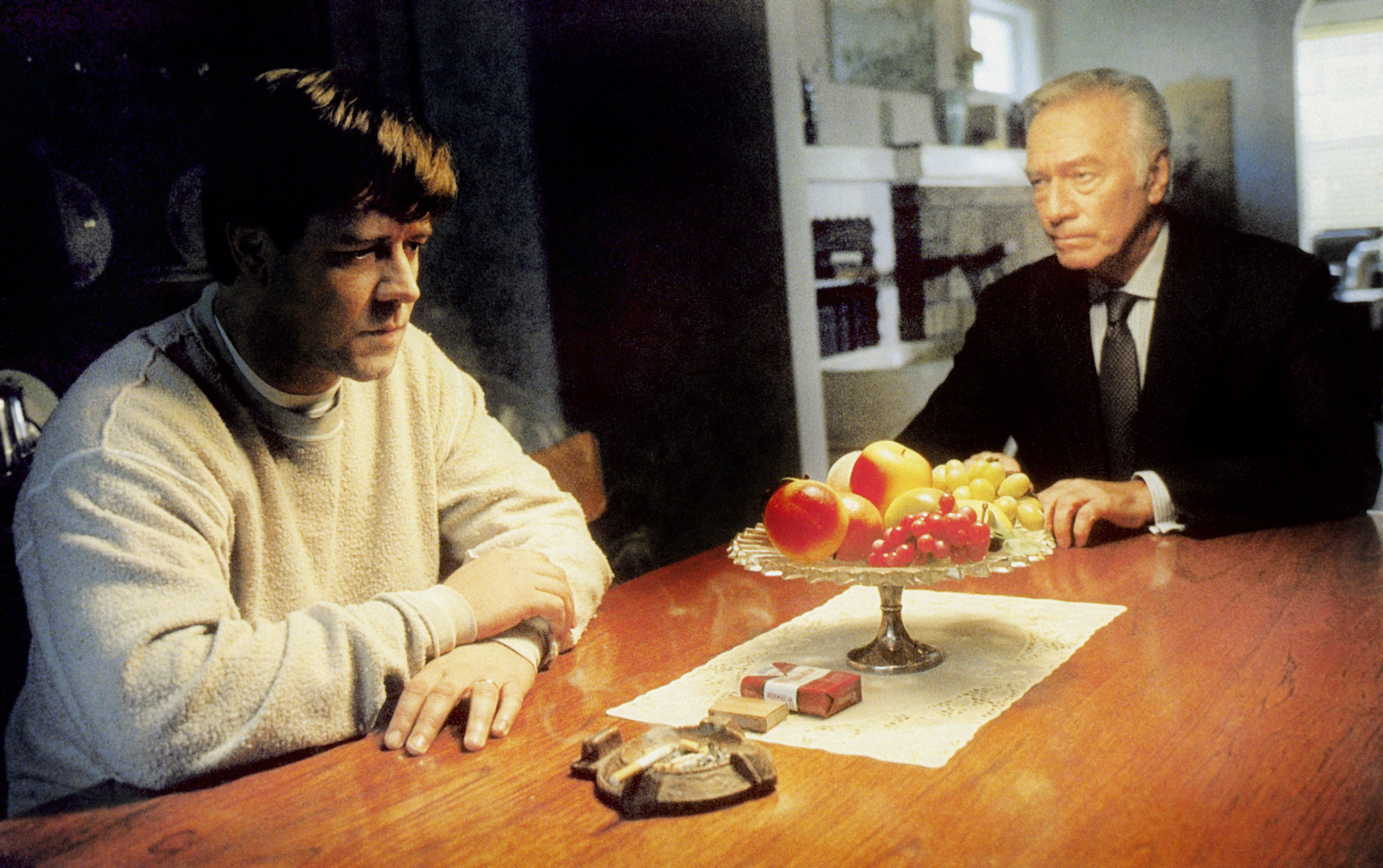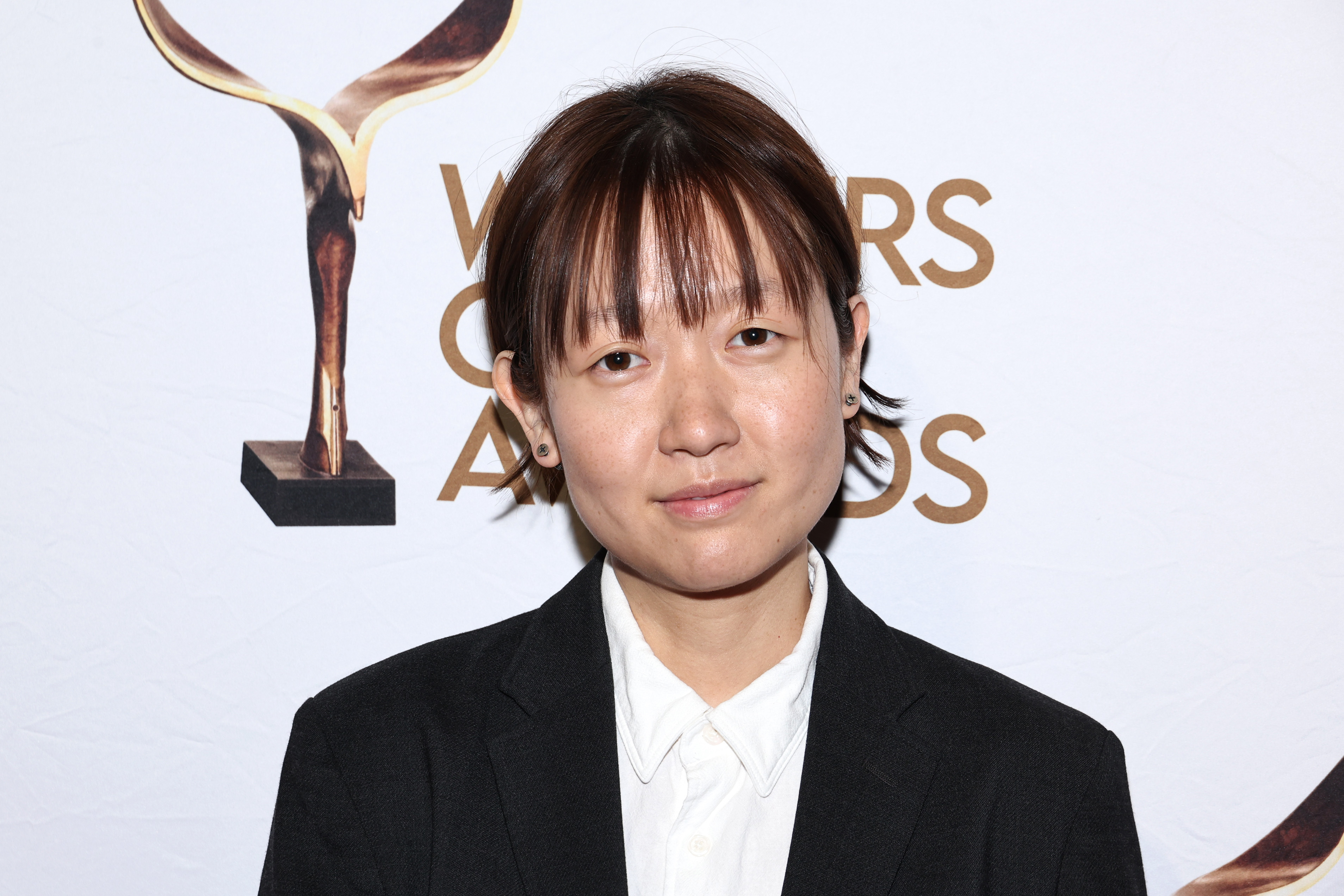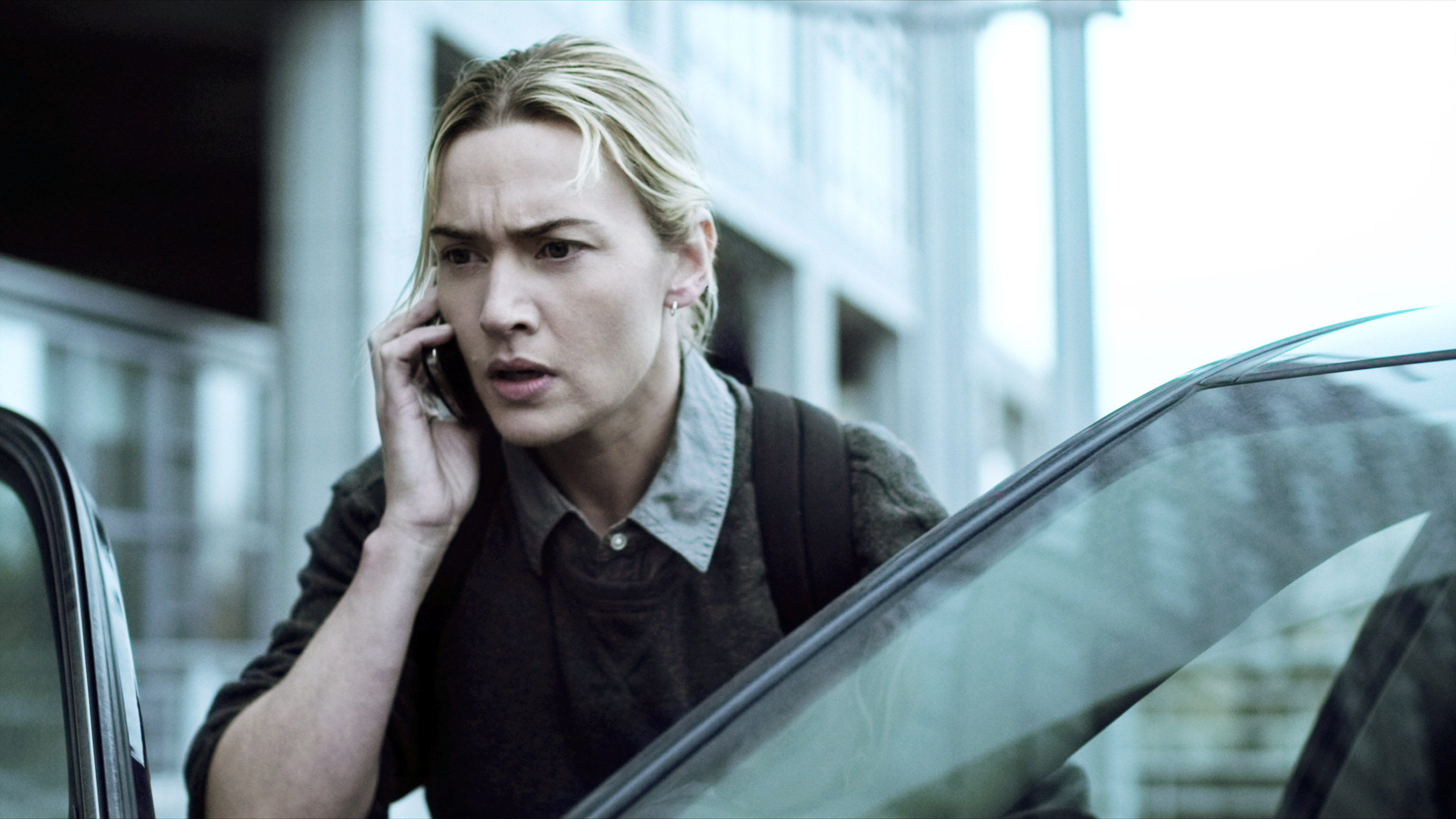
Welcome to My Favorite Scene! In this series, IndieWire speaks to actors behind a few of our favorite television performances about their personal-best onscreen moment and how it came together.
There is a moment, in Episode 3 of AppleTV+ series “The Studio,” in which Ron Howard, playing himself in a Continental Studios marketing meeting, throws his Imagine baseball hat at studio head Matt Remick (Seth Rogen). Soon, they are wrestling on the floor.
The two men have known each other for years, and Howard has just gleefully regaled Remick’s team with the story of how young Remick gave him a memorable note (in front of Spielberg, the Coens, and Soderbergh) on his eventual four-time Oscar-winner “A Beautiful Mind”: Why not reveal the central twist in the movie?
“It is seared into my brain. … He wanted to just lay it out there. Spoil the living shit out of it,” Howard says. That’s when the humiliated Remick snaps back and tells Howard that he has ruined his latest film with a sappy ending. Then all hell breaks loose.
Howard hasn’t been acting much lately (he cameoed as himself last year in an episode of “Only Murders in the Building”), so it’s hilarious to see him veer so far away from his good-guy persona. He could even land an Emmy nomination as Guest Star in a Comedy Series. (He’s up against Martin Scorsese and Matt Belloni.) We talked on Zoom about the scene, his favorite of the series.
The following interview has been edited and condensed for length and clarity.
Anne Thompson: You maintain a familiar good-guy persona in Hollywood, which Seth Rogen and Evan Goldberg subvert in this episode. How did they first approach you?
Ron Howard: I heard that Seth and Evan were doing this show, and that they had a an episode that they’d written built around “A Beautiful Mind” and me. I read it, and that was it. It was hilarious. And I talked to them. I had it for weeks ahead of time, because I haven’t been doing that much acting. It’s the most dialogue that I’ve had to learn. I’ve done some fun little cameos that are easy. And I said, “This is a good role: some acting, twists and turns, and moments to play. I don’t want to just be cameo good. I’d like to be actually good.” And I said, “Who’s directing?” And they said, “We are.” Crack, crack the whip.
How did you prepare? DId you share any war stories?
My goodness, no, no. This was all them. We went through the dialogue and I pitched a couple of tiny tweaks and refinements, and they were open to keeping it loose. And on the day, we try back and forth improvs. Throwing the hat was something that I thought about the night before we were going to shoot it. I had it in the back of my mind, and I didn’t say anything to them, because by then I’d worked a couple of days, and I saw what their approach was, and I did it in the first rehearsal. And suddenly Seth had this hat whipped in his face. But I heard the bellowing Seth Rogen laugh, and he said, “We’ve got to keep that. We’ve got to do that.”
And did you plan to knock him over?
He was supposed to fall down. I was somehow intimidating him enough to make him fall down. Well, he’s a lot bigger than I am. I’m older than he is. How is he going to be intimidated enough to fall down? So I thought what would be really, really humiliating, stupidly humiliating, was to throw your Imagine hat at him. It just crossed my mind that the absurdity of it would be, the pettiness of it would be so weirdly bizarre and and hilarious, and yet, just plausible enough that it might work.
I did it in the rehearsal, and they laughed. And by the time we rehearsed it and shot it a number of times he had to make the oner work. I think he probably got hit in the face 12 or 14 times, but it didn’t seem to bother him. He thought it was funny each and every time. So we kept it up.
Did you have any models, somebody that you could use to inspire this? Did it unleash pent up feelings?
There were no models for this. This was just alter-ego Ron. And so while I’ve never spoken to anybody that way or thrown my hat at them, it was cathartic.
Still, you are not someone who I would want to have angry at me.
People don’t like it when I get angry. But they know I’m upset, and that’s enough. So I don’t dress people down or get in their face or any of that. When I was coaching youth basketball, though, I would occasionally get thrown out of a game. It happened to me a couple of times where I would get on the refs. I was emulating some infamous coaches. But I was a little more vocal — not with actors and not with crew, not with film people. I respect them too much and love them too much to treat them that way. But it was fun. It was so well-written. And frankly, I did prepare. I thought about it.
Did you get a coach?
I was thinking of going to a coach. And I mentioned [that] to the guys, but when I started working on it, I said, “Come on, I know what they’re going for here and and I know what to try for.” I didn’t go to a coach. I did go to my son-in-law, Seth Gable, Bryce’s husband. Seth, who works a lot, is constantly having to learn a lot of dialogue fast. And my brother Clint and I borrowed a couple of their techniques that they suggested for learning lines and used some Seth and Clint tips to get command of the dialogue.
I had the greatest time. It was easy and loose, and you could bend words and try things, and that was the spirit with which they were maximizing their own cast, which is brilliant. They’re very much in command of what they’re doing, yet they create this great vibe. It’s fast-paced, it’s funny. And Seth is amazing, both in front of and behind the camera, and Evan is a great leader as well.
You drew on dark Ron Howard?
It was a character. And, yeah, it was built on some aspects of my life. I wanted to use my cadences and my demeanor and all of that. But as far as the nastiness and taking the delight in humiliating this guy, that was just playing the scene. So I was exercising old gears that I had not used in decades.
Do you remember the last full role that you had? I looked it up. It’s a long time ago.
It’s a long time ago, 1985 or so. We did an Andy Griffith Show, “Return to Mayberry.” And that might have been the last time that I was learning dialogue and playing it.
What struck me about this: there’s a step by step understanding of how to build that scene. Remick is worried about giving you the note. And there’s this moment where you’re sitting at the end of the table, and you say, “Do you have a note?” That’s when Remick knows that you remember his ultimate humiliation.
It’s like a guy who knows he’s got an ace up his sleeve. He’s just been waiting to pull it out and play it, because early on, he is pressing him for notes. Because [Remick], the fact that he’s not speaking up, it means he’s got something up his sleeve. I liked his boss [Catharine O’Hara as Patty Leigh]. I understood her. She was a good executive, and but this guy, I don’t want him to mess with me. And yet, I feel like he’s got something bugging him.
It’s in the room. They’re all waiting for him to deliver the note.
Nobody wants to give an experienced director or actor criticism really. It’s heightened, but it’s realistic. That’s what I love about the series.
“The Studio” is accurate.
Yeah, it is, and of course, [Seth and Evan] know because they’ve been at it a long time themselves and and they’re also producers. It’s a joy to watch.
The character that Matt plays, you wince and cringe in every episode as he is about to walk into the maw of disaster. You recognize the guy who thinks he knows everything and wants to do his best, but is weak and sniveling at the same time.
He’s afraid of the the politics of it all.

They wrote that role for you. And if you hadn’t said yes, they would have had to throw it out, because there was a specific set of things they needed. They needed Oscar-winner “A Beautiful Mind,” a movie with a twist from an established director.
Unless they had another movie with a twist and another director, which I didn’t go into with them.
Explain why this director is so intimidating: the power structure, why this guy has everybody saying nice things to him all the time.
Because of enforceable final cut. I’ve had final cut for years. Executives seem more than willing to tell me what they think, at least, that’s my perception, but I’m also known to be collaborative and open and not so likely to enforce the final cut. If you know somebody has final cut and you cross them, that can be the end of the conversation.
Because the studio is so invested in being in business with these creatives. There aren’t many at your level, right?
Or they’re trapped and stuck with a movie that’s going to fail and cost them a lot of money. It’s a tricky situation. And then, of course, they brilliantly built in this past experience in his history, that’s the gun on the table.
“The Studio” portrays executives running scared in Hollywood.
It’s a very difficult time to be an executive, by hook or by crook, with so many outlets. If you’re passionate enough about something to make all the sacrifices necessary you could probably get projects you really love made somehow.
But even you, your taste is such that the movies you like to make, mid-scale dramas like “A Beautiful Mind” and “Apollo 13,” they don’t make anymore.
I always say that audiences define this more than executives do, and it’s easy to blame it on executives or misreading data. But at the end of the day, the audiences tell us where, how, and how often they’re interested in certain kinds of films or stories at a certain time. Television is doing a great job with character drama and there’s a lot of excellent work going on there that I’m sure has an impact on the theatrical business. And, we creative folks have to keep pushing for the things we care about, and recognizing the marketplace and our audience and then keep taking risks. Because you don’t learn much from following the status quo.
One of the things I find encouraging is “Sinners” doing so well, because that’s a big swing.
Me, too. Even at the multiplex this weekend, I went with my family, it was a matinee. It’s busier. It’s a little more alive. We went to see the Marvel [“Thunderbolts”]. Getting back to “The Studio,” because it took me three days to do it, and it was a real role. It was enough of a departure that it was like playing a character, in a way, even if the character was inspired by me. It was so much fun. So it made me think…
You’re opening the door to acting again? Have you told people this?
I mentioned it to the folks at CAA and and we’ll see.
I look forward to that, whether it’s benevolent Ron Howard or villain Ron Howard.
It’s fun to play an asshole. No wonder everybody likes to play the bad guys once in a while.



